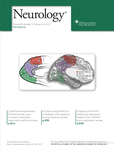
Last week, we wrote about a somewhat remarkable retraction, of a 15-year-old paper by a current Illinois senator who used to be a mathematician. At the time, we were a bit perplexed by the language of the notice, which the senator — who helpfully took our call — couldn’t answer, since he wasn’t involved in drafting the notice.
We’ve since heard back from the journal that retracted the paper, which explained that their phrase that “most results are false” meant the findings by state senator Daniel Biss were inaccurate — not fraudulent.
Here’s more explanation from a joint statement sent to us by Jan van Mill and Jerry Vaughan, the editors in chief of Topology and its Applications:
 A researcher has lost his position as a Chief Scientific Officer at a DNA sequencing company after
A researcher has lost his position as a Chief Scientific Officer at a DNA sequencing company after 

 A researcher in Switzerland has retracted her 2015 paper in the Journal of Cell Biology, saying the first author — her former postdoc — admitted to fabricating multiple aspects of the paper.
A researcher in Switzerland has retracted her 2015 paper in the Journal of Cell Biology, saying the first author — her former postdoc — admitted to fabricating multiple aspects of the paper.



 Neurology has partially retracted a 2016 paper, replacing a figure and removing the author who contributed it
Neurology has partially retracted a 2016 paper, replacing a figure and removing the author who contributed it 